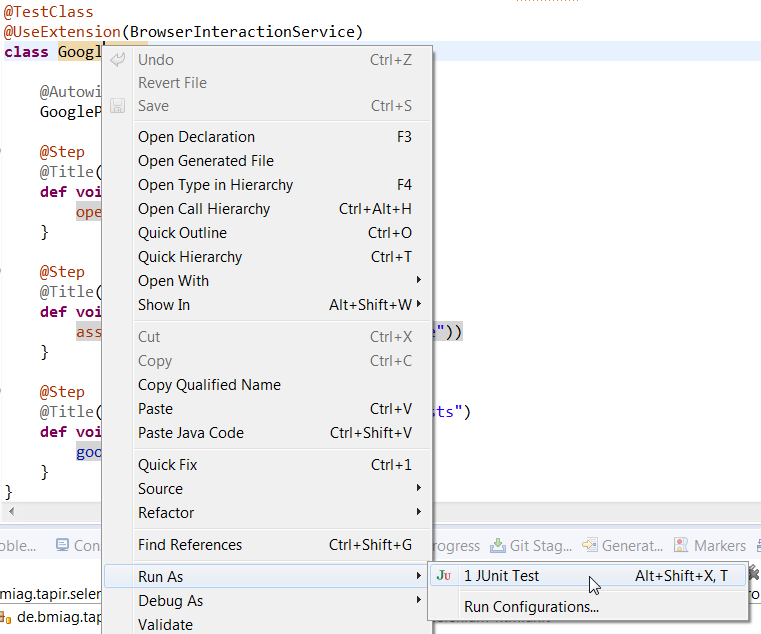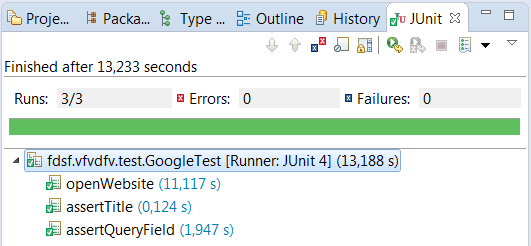-
Changes in Version 3.6.2 (2021-01-22)
Changes in Version 3.5.0 (2020-06-04)
Changes in Version 3.4.2 (2020-03-26)
Changes in Version 3.3.1 (2019-08-22)
Changes in Version 3.3.0 (2019-01-09)
Changes in Version 3.2.1 (2018-12-21)
Changes in Version 3.2.0 (2018-08-27)
Changes in Version 3.1.1 (2018-06-29)
Changes in Version 3.1.0 (2018-03-27)
Changes in Version 3.0.0 (2018-02-20)
JUnit 4
tapir does not enforce the usage of JUnit 4. tapir tests can be started using a Java main method as stated in Running your tapir Tests or JUnit 5. Anyway, using JUnit 4 enables a lot of additional amenities. JUnit 4 is widespread and integrates into existing ecosystems quite well. There are many tools which are aware of the JUnit 4 API.
Dependency
<dependency>
<groupId>de.bmiag.tapir</groupId>
<artifactId>tapir-junit-execution</artifactId>
</dependency>
Eclipse
You can start your tapir tests directly from Eclipse by right-clicking the test class and selecting Run As | JUnit Test.

The progress and the results are displayed in the JUnit view.

Maven
As tapir fulfills the JUnit4 API, it integrates transparently with the maven-surefire-plugin/maven-failsafe-plugin.
You can execute the tests by running this command:
> mvn clean test
Jenkins
Jenkins provides a JUnit plugin which is 100% compatible with tapir. The JUnit plugin consumes XML test reports (which are generated by tapir’s JUnit module) and provides some graphical visualization of the historical test results as well as a web UI for viewing test reports, tracking failures, and so on.
There are a couple of additional plugins which are based on the JUnit 4 API, like Test In Progress which visualizes the current test execution progress.
In general all the frameworks and tools which are compatible to JUnit 4 are compatible to tapir as well.